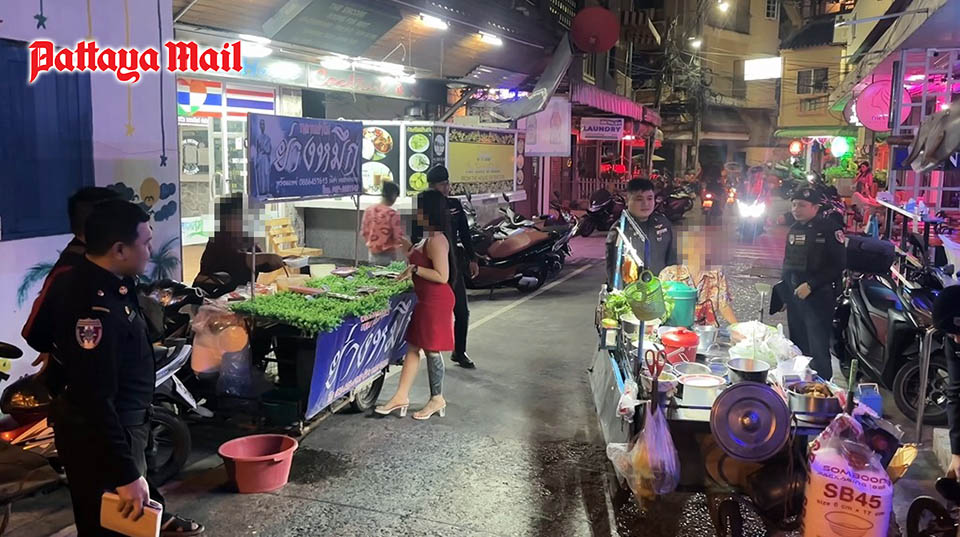
PATTAYA, Thailand – Pattaya, a bustling tourist hub in Thailand, is well known for its vibrant street market scene, where vendors offer a variety of goods and services to both locals and visitors. However, beneath the surface of these lively markets, corruption involving local officials and street vendors has become a growing concern.
Street vendors, often the lifeblood of Pattaya’s informal economy, are sometimes forced to deal with officials who demand bribes or other illegal payments in exchange for permission to operate in certain areas. These extortion practices can take the form of “savings” or “protection” money, where vendors are pressured to pay monthly or weekly sums to avoid being fined, harassed, or evicted from their locations. In some cases, corrupt officials may also demand free goods or services as part of the agreement.
Such corrupt practices not only harm the vendors who already face economic hardships, but they also undermine the integrity of local governance and create an unfair playing field for those who follow the rules. In recent years, stories have emerged of vendors being forced to pay off officials simply to stay in business, further deepening distrust between the public and local authorities.
This problem has raised significant concerns among residents and tourists alike, as it tarnishes the image of Pattaya as a popular destination for both leisure and commerce. In response, local government officials have pledged to tackle these corrupt practices, with the intention of providing a safer, more transparent environment for street vendors. Investigations into the matter have revealed the involvement of some officers from Pattaya’s Special Operations division, who allegedly extorted money from vendors while failing to address their legitimate grievances.
Pattaya’s mayor has called for a thorough review of these incidents and promised stricter measures to ensure that vendors are not subjected to harassment or illegal demands. In one notable case, a vendor who was coerced into paying protection money came forward, triggering an investigation that led to the identification of the corrupt officials involved.
Despite these efforts, eradicating corruption remains a significant challenge, especially given the close relationships between some vendors and the officials. Many vendors feel trapped in a cycle where refusal to comply could lead to retaliation, further complicating the issue.
As the local government works to clean up its act and restore public trust, it is clear that the battle against corruption in Pattaya’s street markets is far from over. Only time will tell whether these efforts will succeed in creating a fairer, more transparent environment for the city’s informal economy.










